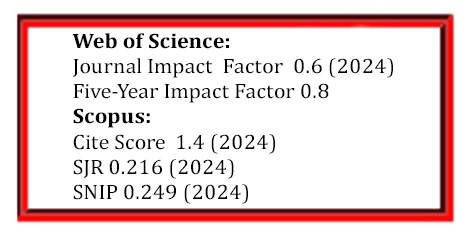Thermal Properties and Characterization of n-Decanol-Capric Acid/Expanded Graphite/Boron Nitride for Thermal Energy Storage
DOI:
https://doi.org/10.5755/j02.ms.33351Keywords:
the thermostatic chamber, phase change materials, boron nitride, thermal propertiesAbstract
To find a low temperature phase change material (PCM) that can be applied to the middle constant temperature chamber of the three chamber refrigerator, this study proposes a binary eutectic PCM of n-decanol and capric acid as a base liquid, expanded graphite as a support material, and boron nitride as a thermal conductivity enhanced particle to modify the material. The composite PCM with suitable phase change temperature and high phase change latent heat is prepared by the solution blending method. The leakage rate experiment determines the maximum adsorption ratio of expanded graphite to be 92 %. The chemical structure, microstructure and thermodynamic properties are characterized by Fourier transform infrared spectroscopy, differential scanning calorimetry, scanning electron microscopy, thermal conductivity analyzer and thermogravimetric analyzer. The results show that the n-decanol and capric acid binary eutectic PCM is fully wrapped in the porous structure of expanded graphite, and boron nitride thermal conductivity enhanced particles are well adsorbed on the surface and pores of expanded graphite. The n-decanol and capric acid phase change material, boron nitride thermal conductivity enhanced particles and expanded graphite support material are only physically combined and no chemical reaction occurred. The phase change temperature of CPCM-2 with 3 % boron nitride thermal conductivity enhanced particles is -3.68 °C, the phase change latent heat is 129.2 J/g, and the thermal conductivity is 0.75 W/m·K. It has good thermal stability and reliability in the application temperature range.
Downloads
Published
Issue
Section
License
The copyrights for articles in this journal are retained by the author(s), with first publication rights granted to the journal. By virtue of their appearance in this open-access journal, articles are free to use with proper attribution in educational and other non-commercial settings.



